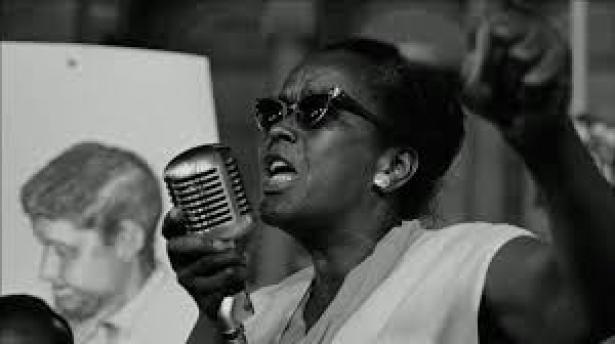I woke up this morning thinking about Dr. Martin Luther King, Jr. And then I began thinking about Ella Baker, whose model of “group-centered leadership” I have recently been meditating on and writing about.
I heard Dr. King speak in person twice during the 60’s, once at Grinnell College in Iowa a few months before he was assassinated. When he was killed 50 years ago, on April 4th, 1968, I began what became 50 years of progressive activism by posting a petition to Congress on the wall of the student mail room that night. About half the students had signed it by the end of the following day and I sent it off to Mike McCormack and Hubert Humphrey, the leaders of the House and Senate.
I met and worked with Ella Baker for several years in the mid- to late-70’s after I moved to New York City. Ms. Baker was part of the leadership for a while of a group I was working with, the Mass Party Organizing Committee, and I have always been so grateful for that privilege. I would like to think that I learned much about how to be an effective organizer from the time spent with her and the things about her that I learned from others.
Dr. King and Ella Baker were the two primary leaders of the Southern Christian Leadership Conference in its first couple of years of existence, between 1958 and 1960. King was the heart, soul and speaking voice of SCLC; Baker was the Executive Secretary. Baker was a public speaker too, but she was primarily the behind-the-scenes, get-things-done, relationship-building person. Her vision in doing so was for the emergence of a grassroots-based, mass movement and organization that could take on structural racism and fundamentally transform US society, with Black people at the center of the leadership of that movement.
Ella Baker had been active in the Black civil rights and freedom movement since the late 1920’s. She had traveled throughout the deep South in the 1940’s for the NAACP, actively supporting local organizers and encouraging the building of strong grassroots organizations which operated in a cooperative way. She was a strong advocate for a shared leadership model and an emphasis on empowering the members of the organization and the new people getting involved: a continually-empowering mass movement.
Ms. Baker had problems with the decision-making structure of SCLC, as explained clearly in Joanne Grant’s biography, “Ella Baker, Freedom Bound.” The decision-making structure, as explained there, was essentially Dr. King making the major decisions, with input from others.
With the emergence of the student desegregation sit-ins at lunch counters in the deep South in 1960 and the creation of the Student Nonviolent Coordinating Committee, Ms. Baker shifted her time and energies to SNCC. She was a major supporter of the organization and took part in the decision-making process, but usually in the capacity of an active listener who occasionally asked questions.
Grant explains it this way: “Often, her questions directed the discussions. Her technique was much like that of Nelson Mandela, who had learned it from his mentor, a tribal chieftain. Mandela wrote in his autobiography, Long Walk to Freedom, ‘I have always endeavored to listen to what each and every person in a discussion had to say before venturing my opinion. Oftentimes, my own opinion will simply represent a consensus of what I heard in the discussion.’” (p 136)
Our individual movements and our movement of movements can accomplish much in 2018. The political winds are clearly blowing in a progressive direction, evidenced most recently by the defeat of Trump-backed bigot Roy Moore in the US Senate race in Alabama. The Republicans, and corporate Democrats, are in trouble. But unless we consciously utilize, as much as possible, the group-centered, cooperative, grassroots-empowering, consensus-seeking methods of decision-making, consciously interact with one another and new people in a supportive and strengthening way, whatever gains we make will be much less than what they could be, much less than what our peoples and our damaged world so badly need.
Ted Glick has been a progressive activist and organizer since 1968. Past writings and other information can be found at http://tedglick.com, and he can be followed on Twitter at http://twitter.com/jtglick.
Thanks to the author for sending this to Portside.


Spread the word